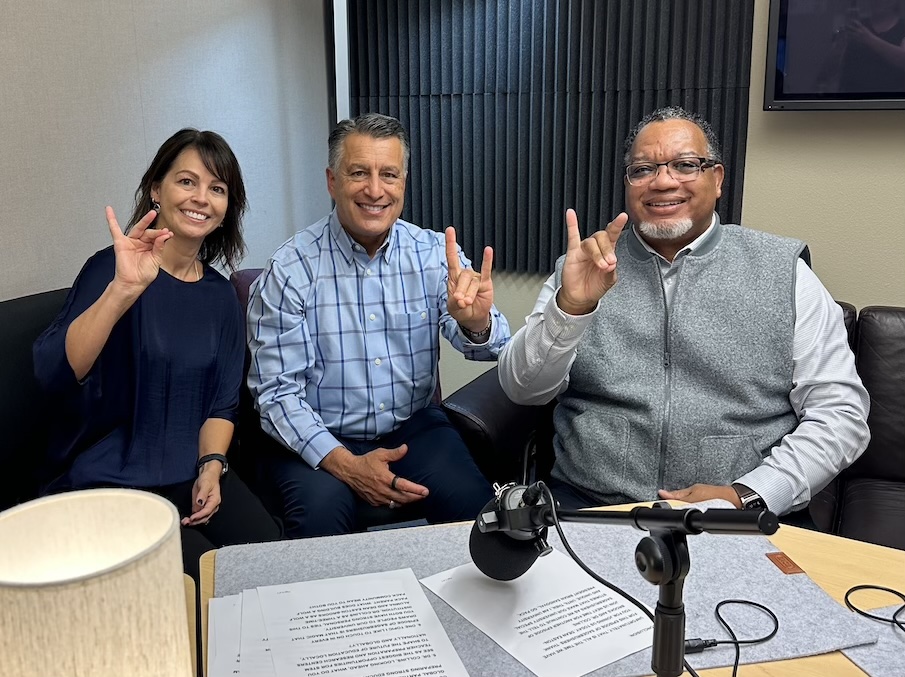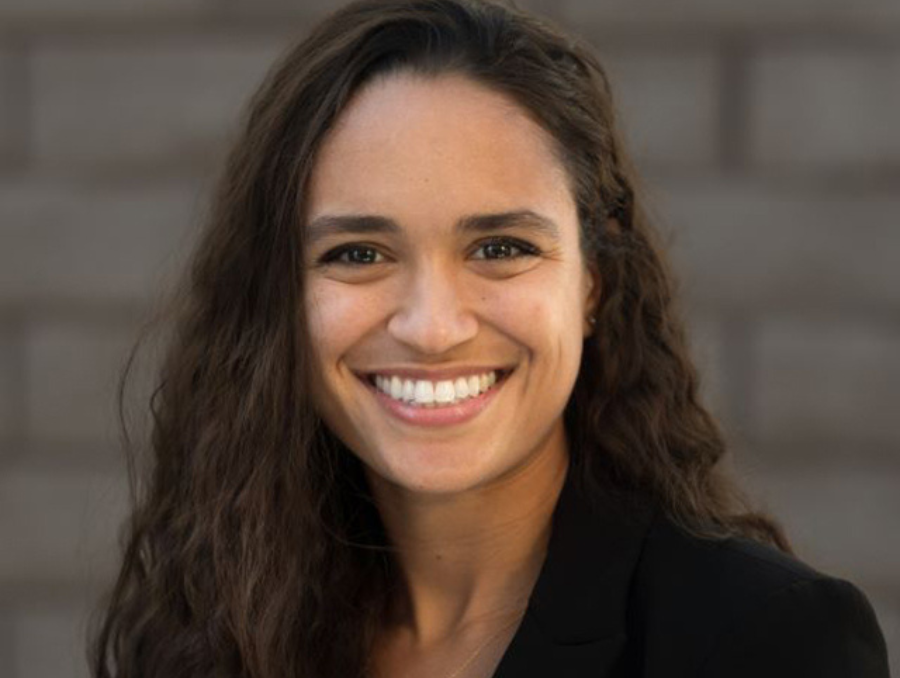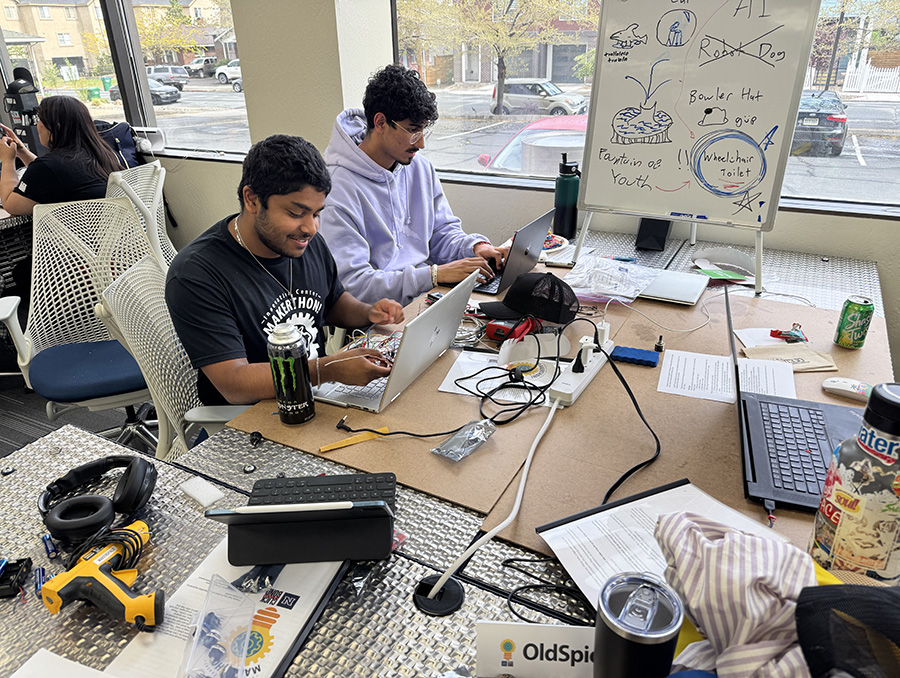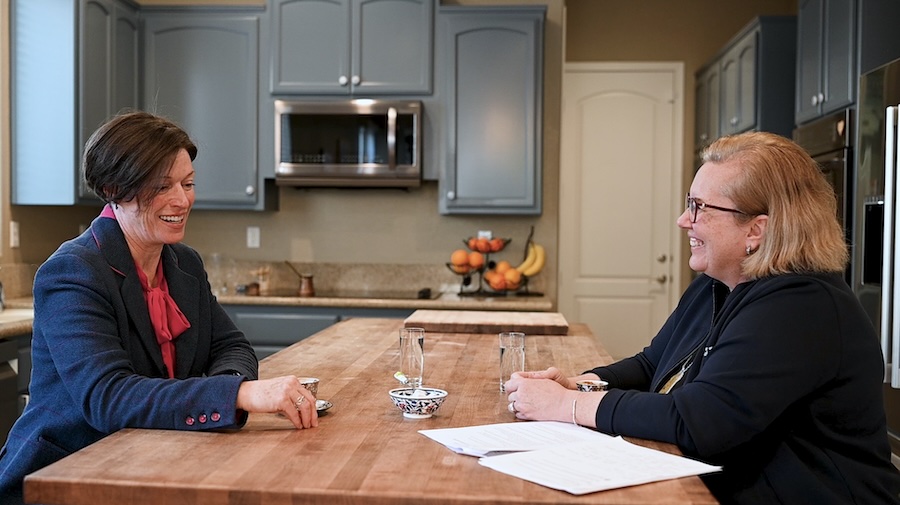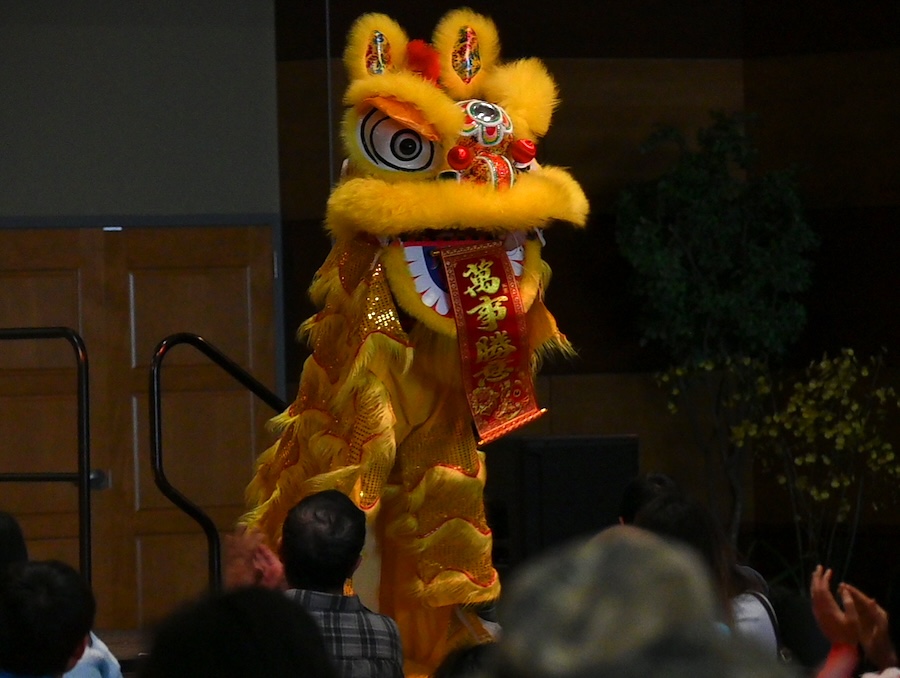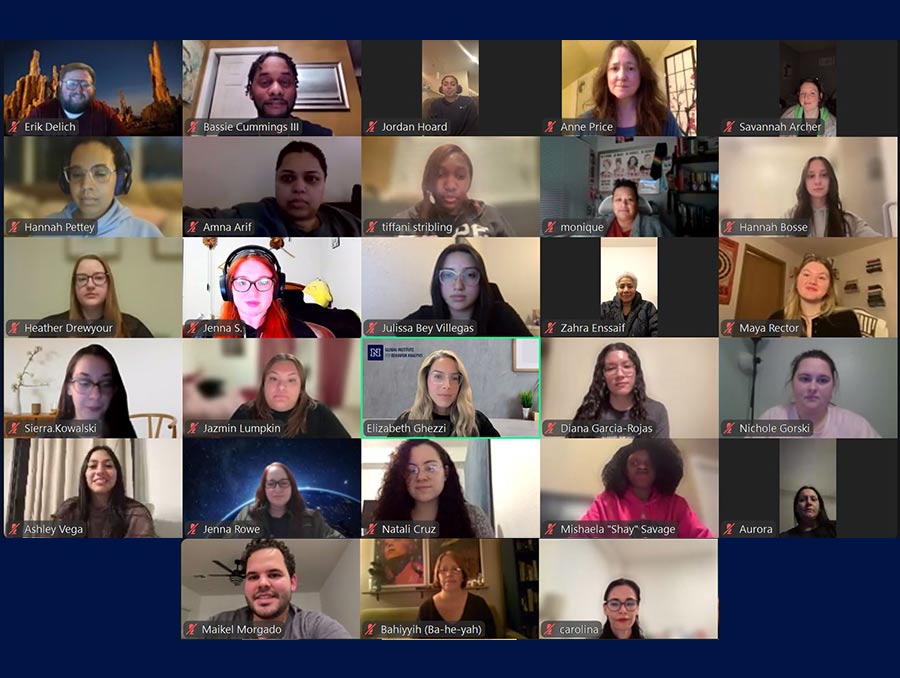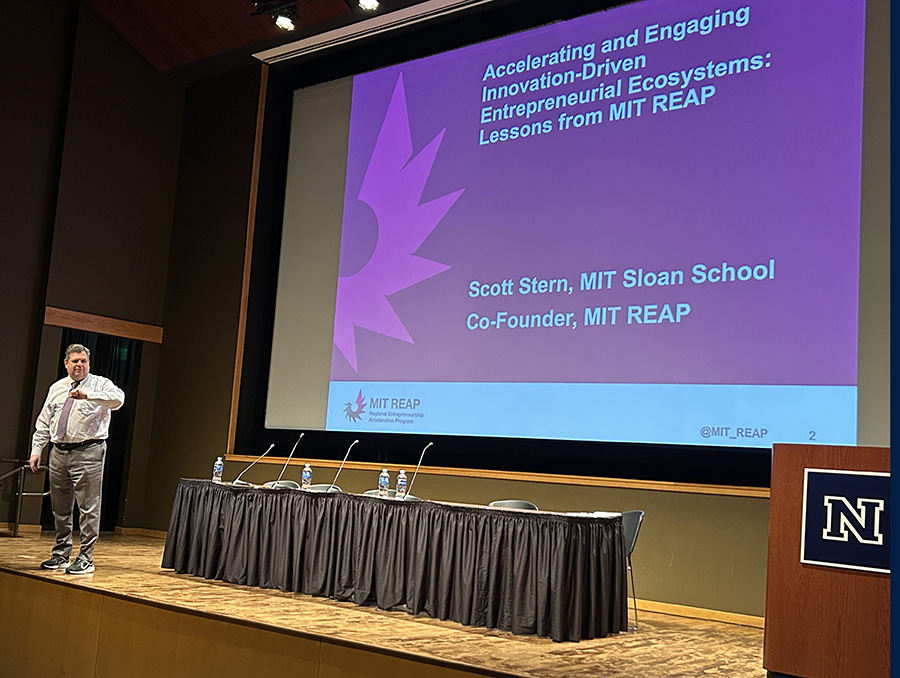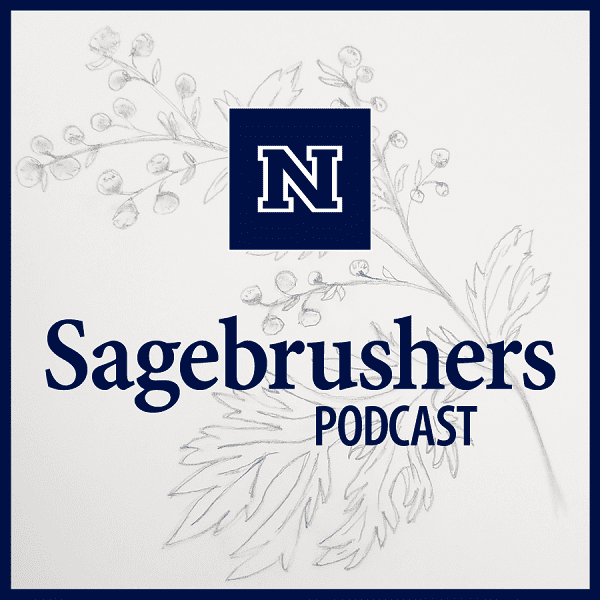
Thank you to the team at the University Libraries @One Center for producing and editing this episode.
In this episode of Sagebrushers, University of Nevada, Reno, President Brian Sandoval speaks with Dr. Donald Easton-Brooks, dean of the College of Education and Human Development, and Dr. Mandi Collins, associate professor and master teacher with the NevadaTeach program. Easton-Brooks and Collins provide insight into NevadaTeach, the dual-degree program preparing highly qualified educators, strengthening STEM education across Nevada.
Easton-Brooks is an award-winning, internationally recognized researcher whose groundbreaking work on ethnic matching has influenced policy and practice in the United States and abroad. He is also a proud Wolf Pack dad, with both of his sons currently attending the University.
Collins is an associate professor and master teacher with the NevadaTeach program. She also serves as director of the Raggio Center for the Advancement of STEM, where she leads initiatives to strengthen teaching and learning through research, engagement and outreach. She is a proud three-time alumna of the University.
"[The University of Nevada is] a hidden jewel, and we shouldn't be — we should be something that everybody gets to experience. This is a wonderful place, a warm place, and a place where knowledge happens." - Dean Donald Easton-Brooks
During the episode, Sandoval, Easton-Brooks and Collins discuss the successes of NevadaTeach over the past decade. More than 150 students have graduated and are now teaching in more than 330 classrooms across the state. NevadaTeach fosters a strong community and supports students, helping them teach STEM content while inspiring confidence in learning.
Sagebrushers is available on Spotify, Apple Podcasts and other major podcast platforms, with new episodes every month.
Sagebrushers season 4 ep 7: College of Education and Human Development NevadaTeach
In this episode of Sagebrushers, University of Nevada, Reno, President Brian Sandoval speaks with Dr. Donald Easton-Brooks, dean of the College of Education and Human Development, and Dr. Mandi Collins, associate professor and master teacher with the NevadaTeach program. Easton-Brooks and Collins provide insight into NevadaTeach, the dual-degree program preparing highly qualified educators, strengthening STEM education across Nevada.
President Brian Sandoval: Welcome back, Wolf Pack family. I’m your host, Brian Sandoval, a proud graduate and the president of the University of Nevada.
Today’s guests are focused on guiding, shaping and mentoring high-performing, well-qualified educators, human development specialists, counselors and administrators. Their graduates are strengthening the social, educational and economic well-being of Nevada’s children, citizens and beyond.
Joining us today is Donald Easton-Brooks, dean of the College of Education and Human Development. He’s an award-winning, internationally recognized researcher whose groundbreaking work on ethnic matching has influenced policy and practice in the United States and abroad. Dean Easton-Brooks earned his doctorate in educational leadership and innovation, as well as a master’s in early childhood special education — both from the University of Colorado at Denver. He’s also a proud Wolf Pack dad, with both his sons now attending the University.
Also with us today is Dr. Mandi Collins, a teaching associate professor and master teacher with the NevadaTeach program, which prepares students to earn a dual bachelor’s degree in secondary education and a STEM discipline in just four years. She also serves as director of the Raggio Center for the Advancement of STEM, where she leads initiatives to strengthen teaching and learning through research, engagement and outreach. A proud three-time alumna of the University of Nevada, Dr. Collins holds a Bachelor of Science in secondary education with biology, a Master of Science in educational leadership and a Ph.D. in STEM education. Before joining the University, she spent 14 years as a secondary science educator in the Washoe County School District.
Today's podcast is being recorded in the podcast suite within the @One Center at the Mathewson-IGT Knowledge Center.
So, first of all, welcome.
Dean Donald Easton-Brooks: Thank you.
Dr. Collins: Thank you.
Sandoval: We’re very excited you’re here, and I can’t wait to have this conversation. Let’s get started with you, Dr. Collins. I understand the NevadaTeach program is celebrating 10 years at the University. For those listening who may not be familiar with the program, could you share how the dual-degree program works to prepare undergraduates to graduate? And what have been some of the major successes over the past decade?
Collins: Great, yes. As you mentioned, this is our 10-year celebration for the NevadaTeach program. NevadaTeach started as a dual-degree program and a UTeach replication site. What that means is students in our program graduate in four years with a Bachelor of Science degree in their content area and another Bachelor of Science degree in secondary education — both in just four years.
We’ve had many milestones over the past decade. We’ve graduated more than 150 students who have earned degrees from the College of Education and Human Development, the College of Science, and the School of Public Health. Another major highlight this year was hosting our annual UTeach conference here in Reno — the first time the conference has ever been held outside of Austin, Texas. That was a big win for our students, our program and the University.
Over the last 10 years, our faculty and students have also built a really strong community. In our space, we have areas dedicated solely to students, connected to our faculty offices, so we can get to know them better and provide the support they need.
Sandoval: So, a couple of examples. So, if Brian Sandoval graduated from NevadaTeach, I would get a degree in education and perhaps a degree in chemistry or engineering or something like that. So, do you have a few examples of our students who’ve done that and where they have gone on to teach?
Collins: Yeah, I've got some really fun numbers to share. We have 150 graduates. Nearly 70% of those graduates have gone on to teach in classrooms of our students. We have them working in 67 schools throughout the state, 334 classrooms. If you estimate about 25 students per classroom, that's a pretty low estimate. You have a daughter in education, that's a really small classroom size considering that's about 8,500 students that have been impacted by a NevadaTeach student and supported with their math and science instruction.
Sandoval: So, what's unique about this in terms of if I got an education degree and I taught at a high school and they said, ‘hey Brian, we want you to teach chemistry.’ Maybe chemistry is not a good example, say math or English or something like that. How is this better than that?
Collins: Because our students are graduating with those two degrees, they're poised to be highly knowledgeable of their content area because they're holding that degree or their STEM content area, but then they're also poised with a pedagogy to be able to teach it and make it accessible for K-12 students. It also is not a great fit for everybody. So even when we have those students, as I mentioned, about 70% of them go into the classroom. For that 30% that don't, some of them move into graduate school in education and others go into industry, and even those that go into industry are still positioned with really good pedagogy to be leaders and help with the professional development and workshop development for their colleagues.
Sandoval: That’s fantastic.
Easton-Brooks: It's fantastic. For instance, I think there are probably about three UTeach sites west of Texas, with us being one of those. And I think there's one in the Northwest somewhere, I'm not quite sure, but I know there is. So, it's unique to our region and the type of things that we're doing in our region. So, yes.
Sandoval: So, I'm going to stay with you, Dean Easton-Brooks. And from your perspective, how does this dual-degree program fit into the broader vision of the College of Education and Human Development in preparing future educators?
Easton-Brooks: Absolutely. Absolutely. So, one of the things we pride ourselves on is giving our students that added value, giving them something that they might not get elsewhere. And so, for us, the question you asked, Mandi, about ‘how does this benefit our students?’ Oftentimes in education programs, we have teachers that graduate, they might be strong pedagogically or they might be strong in content. Being able to integrate those things into two majors and integrate those together to have a knowledge basis is often difficult. So for us, our program really provides them an opportunity to bring both of those things together and to study those things at the same time.
So typically, programs would say, all right, you do your pedagogy and content well, you do your content first. So, you take all your chemistry classes and you do them first, and then your junior year you jump into the education program, and then we're going to show you how to utilize that.
But what we do is that they're doing it simultaneously, so they're able to learn how to integrate that content knowledge into practicum at the same time. So, by the time they finish our program, they really have about three to four years’ experience doing that type of work. So that added value is that when they get into the classroom, they're not trying to relearn some things that they should have learned in the program. So that gives them that value that other programs don't get.
Similarly, with NevadaTeach, one that's not simulated, we do the same type of things. So, it works: every time I go out to a school and a principal I know is there and I ask them, what can we do for you? First thing that comes out of their mouths is, ‘can we get a NevadaTeach teacher?’ And so that's the first thing I want to know: can we get a NevadaTeach teacher? And that's something that's very valuable to the schools because they know the quality that's going to come out of these students.
So, this model is something that we've been able to think about. How do we replicate? As we even do our research, integrating content and pedagogy into learning, we're finding it to be a model that really works well for our students and for our community.
Sandoval: And a couple follow-up questions, dean, if I may, for a principal of a high school, this must be a gift.
Easton-Brooks: It is a gift.
Sandoval: Someone with that content.
Easton-Brooks: Absolutely.
Sandoval: Knowledge.
Easton-Brooks: And they recognize that. I remember being at a Home Depot and a principal stopping me. You don't know me, and I'm thinking they're going to talk about something great, maybe something I did, something great. And the response is, I talked to a principal at X school, can we really get some NevadaTeach students? And I said, ‘okay, so what is the value of this?’ And just went on to talk about the same things I just talked about: having quality teachers that can come in, hit the ground running and be ready to move and do the work, especially in STEM, per, as you know, we are in a region where STEM is really increasing. And having teachers who are able to prepare our students to go into the workforce or go into higher education with that STEM-based knowledge is huge to our region. And I think principals see that and see that in our students.
Sandoval: So, Dean, thank you. And you served this up perfectly. So, I'm going to go back to Dr. Collins. So, Dr. Collins, let's switch gears and discuss your role as director of the Raggio Center for the Advancement of STEM. What are some of the current projects or partnerships that highlight the center's impact on teaching, learning and community engagement?
Collins: Thank you. The center currently has funding through the National Institutes of Health with the School of Medicine and the Latino Research Center, supporting high school students to come to UNR for a week during the summer, work on a semester- or yearlong project to create pathways for them to go into STEM and medical career pathways. That's one of the projects.
Another ongoing project that we have is supported with funding from the U.S. Department of Education, and that one is in collaboration with the Desert Research Institute, our friends at UNLV and also Western Nevada College. And for that project, we're teaming students from the College of Education and Human Development with students from the College of Engineering, the College of Science and CABNR.
Sandoval: And CABNR is the College of Agriculture, Biotechnology and Natural Resources for our listeners.
Collins: For our listeners, yes, I was going to be tongue-tied if I tried to say that one out.
So we partner those two students, one of them with a pedagogy, another intern with the science and STEM content, and we partner them with a high school science or math teacher to work with that math teacher, be mentored from that math teacher and work on a product developing some sort of STEM education product that's going to help the teacher and their students have better access to STEM.
Our most currently funded projects are the ones that I'm most excited about, and those are both funded through the National Science Foundation in Noyce Track One and Noyce Track Four funding. The Noyce Track One award is going to result in twenty $20,000 comprehensive scholarships for students, undergraduates looking to major in STEM education. That project is super near and dear to me because it's going to benefit rural Nevada and my hometown of Elko with partnerships with Great Basin College and Elko County School District. And that project aims to address the critical shortage of highly qualified STEM teachers in rural Nevada.
The Noyce Track Four award is in collaboration with many other institutions across the U.S., many of them those UT institutes, and that one is going to be research-focused and we're looking at STEM education graduates’ retention and effectiveness once they're in the field. And so we're hoping the research that is generated from that project will better equip pre-service education programs with helping develop teachers that are retained and effective in the classroom.
Sandoval: Well, thank you. And I didn't know you're from Elko. I am a proud graduate of Elko High School.
Collins: Very much so.
Sandoval: Alright. Okay. Well, that's amazing. And Dean Brooks, I understand that the college also has some broader initiatives and collaborations that extend internationally.
Easton-Brooks: Absolutely. And actually, Dr. Collins has been a part of those things as well.
One of the things I tell our faculty and staff in our college is that the reward for good work is more work, and she has jumped on that. We really have two initiatives that are set and ready to go, and actually one that is coming up. We have a partnership with a university in South Korea in which they bring students over to spend about 10 days with us. We engage our students with them, and they have a really good cultural experience around teaching, learning and development as well. This past spring, we sent 15 students over to South Korea — Dr. Collins was one of the faculty who went — and they were able to really engage with what instruction looks like there.
We also have one with Reggio Emilia, Italy, and that first cohort is going to go over this coming spring. That benefits our students in so many ways. We do a one-week abroad experience because a lot of our students are working students and might not have the financial resources to study abroad for an entire semester. So, we try to do as much as we can in one week over spring break, where they can have those experiences and really engage with another culture to understand how learning looks from a global lens. That, in turn, helps us engage with our students from diverse communities here in the U.S.
The newest partnership we have coming up is with Japan. We have faculty going out to talk with them about future collaborations as well. This topic is huge — it’s probably another podcast — but there are so many things we’re able to do with this, and it broadens the brand of UNR and what we’re able to accomplish. We’re excited about what’s happening in that area.
Sandoval: Oh, that’s amazing. And Dr. Collins, real quick — I have another question, but you got to go to Korea, right? You did. So, what was the takeaway for you?
Collins: There are so many differences in their educational systems compared to ours. I think the biggest takeaway I had — the biggest aha moment — was seeing how, here in the U.S., our classrooms are very siloed. The teacher’s desk, the teacher’s computer, the teacher’s work, all the classroom materials are in their classroom. But in South Korea, it’s not like that at all. The classrooms are the students’ spaces, and the teachers’ offices are open, collaborative spaces where all of the teachers work together. I don’t know of a school where it looks like that here, and for me, it was that collaboration between the teachers and the space being given to the students that really stood out.
Sandoval: Well, maybe someday we could have a laboratory school to try that out.
Collins: That’s amazing.
Sandoval: So, looking ahead, Dr. Collins, what do you see as the biggest opportunities for STEM teacher preparation and research centers to shape the future of education locally, nationally, and globally?
Collins: It's a really hard question.
Sandoval: Yeah, I bet it's big.
Collins: Yes. The future is hard, and there's a lot of potential. I think one of the greatest opportunities that we have in STEM teacher preparation and research centers is in the work that we have to rebuild the public trust in education and science in a time of growing skepticism and uncertainty. Education preparation programs and centers can serve as hubs for preparing teachers for that work, to deliver rigorous STEM content, but also sharing ways that kids can critically engage and be civil servants locally. This means cultivating partnerships with schools and communities to make STEM relevant and accessible, and showing students and families how this can be done. Collaboration with community and educational partners is important for ensuring that our students are given opportunities to learn and engage in STEM model environments. And I think that this is important because kids need to be able to see themselves in STEM and make that part of their identity, so that we can, again, and you were alluding to this, especially in our area where STEM is becoming more prevalent in the industries, our kids need to be able to see themselves in those spaces and develop those identities to work and create pipelines to be in those spaces. Educators are positioned as guides to our students, and so to help them face challenges with curiosity, evidence and resilience is important on a national and global teacher preparation level. And research centers can be future-focused by connecting that learning with real-world applications and research to maybe inform policy and practices.
Sandoval: That's fantastic. We're getting close to our time, so this will be a little bit of a lightning-round question for each of you. But I'll go back to you, dean. You've been here for many years, and now you have your two sons here at the school. And I guess for the listeners, now you are understanding why I consider our University one of the nation's great universities. But will you talk a little bit about the magic of the University?
Easton-Brooks: President, you're right. It's being here and really just being a champion for this University, advocating for this University, and really feeling at home at this University is something over the last six and a half years that has been wonderful. But to see my kids experience what you call The Wolf Pack Way is inspiring.
When my kids call me and say, "This is what I learned in class today. I met this professor who's doing these great things," my youngest son, after three days of being on campus, says, "I love this place. It's so diverse. I'm getting to meet people from all over the world. I'm getting to have great experiences." And every day he comes in my office and mentions something new about the university. It warms my heart that my kids are having an experience that they feel proud of, that they're getting an education that they feel is benefiting them, that it's moving them, and that they feel proud to be a part of something special.
You mentioned the value you see in this University. I've heard it so many times, but to see it in my children now gives me a new thought about who we are and what we're about. We're a hidden jewel, and we shouldn't be — we should be something that everybody gets to experience. This is a wonderful place, a warm place, and a place where knowledge happens. So that's kind of what I pull from this.
Sandoval: We're going to put that on TV. Dean, that was amazing. So, Dr. Collins, I think it sounds like you're a native Nevadan, a graduate of Elko High School, and then a three-time graduate of this university, and now a professor here. What do you consider the magic of the University of Nevada?
Collins: I have pretty deep roots here. Deep. I think about my past as a student here, and it doesn't compare to my work here as a faculty member and the work I get to do with students. And so, as an educator, we know the importance of community and belonging. I feel like the magic here — this special part of here, or a special part of NevadaTeach even — is the community that we've established with our group of students. I hope that they all know that they have somebody championing them in their corner and rooting them along as they navigate their education and their futures. I'm super proud of the work that we do with our graduates so that they know that this carries on after graduation. I like to be that "phone-a-friend" that they can call with, like, "Hey, this is going on in my life and this is what I need help with." And so, I think just that community is the magic.
Well, you both covered it, and as the dean said, The Wolf Pack Way and The Wolf Pack Family, we take care of one another. We could talk on and on, but unfortunately, that is all the time we have for this episode of Sagebrushers. Thank you for joining us today, Dean Easton-Brooks and Dr. Mandi Collins.
Easton-Brooks: Thank you.
Collins: Thank you.
Sandoval: And join us next time for another episode of Sagebrushers as we continue to tell the stories that make our University special and unique. Until then, I'm University President Brian Sandoval, and as always, Go Pack!
